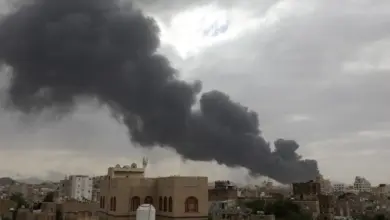The Iranian opposition demonstrations following the ‘ashoura mourning day was the subject of interest of various French papers. Liberation pointed to the regime’s figures demanding sanctions against the leaders of the opposition and reported about arrests of human rights activists and journalists. Focus was given to the arrest of the sister of Nobel-prize winning writer Shirin Ebadi.
Le Monde, on the other hand, posed questions around the whereabouts of opposition leaders Mir Hossein Moussavi and Mehdi Karoubi, who also partook in the presidential elections held last June. “Are they in Teheran? Are they pressured by the Iranian authorities? Contradictory information are circulating with regards to Moussavi and Karoubi,” read the lead of the story in Le Monde. Delphine Minoui of Le Figaro wrote about the Iranian response to the opposition demonstrations, reporting on riots held by hundreds of thousands of regime supporters denouncing the Western-led plot to topple the Islamic regime. She pointed to the organizers of the regime riots, which include the revolutionary guards, theological schools and local associations. “It’s a big directed show. Nothing more,” an anonymous man told Minoui after confiding to her that his company received orders from the state to participate in the riots. “Iranian President Mahmoud Ahmadinejad seized the occasion to accuse, once more, Western powers of the current crisis,” Minoui wrote.
Yemen received some headlines in French media following the incident of a Nigerian man attempting to attack a plane heading from Amsterdam to Detroit on Christmas day. American security reports stated that the man received the explosives and the orders for the attack in Yemen. A group by the name of al-Qaeda in the Arabian Peninsula announced its responsibility on the attempt. Le Journal du Dimanche reported about the failed attempt and its possible connection with al-Qaeda network. Comments to the news story expressed suspicions around this connection. “Are they going to still sell the legend of al-Qaeda for a long time?” asked one commentator.
The incident has been used to speculate about the possibility of Yemen becoming a fertile space for Jihadi Islamists and more precisely al-Qaeda operations. Le Point interviewed Dominique Thomas, expert on Islamic movements at the Ecole des Hautes Etudes en Sciences Sociales. According to him, in the past three years, Yemen has become a back base for al-Qaeda with a few incidents providing evidence. One is the release of militants transferred from Iran and Afghanistan from Sana’s prison in 2006, which led to the reconstruction of an al-Qaeda entity following its dissolution in 2003. In January 2009, al-Qaeda in the Arabian Peninsula announced its birth through the fusion of the Yemeni and Saudi contingents of the international Islamic militant network. The latter suffered from the Saudi state oppression since 2003 and resorted to crossing the border to Yemen where the regime is less scrutinizing. Thomas also reminded that militant leaders in Yemen have always been close to Usama bin Laden. The latter’s mother is Yemeni and identifies with Yemen more than Saudi Arabia, which stripped him of his nationality. Yet, according to Thomas, the danger of the evolving al-Qaeda network in Yemen is contested. On one hand, militants of Yemen strongly communicate through the Internet. Yet, Yemen hasn’t become a training site, like Afghanistan, and is only reduced to a transit point by which students stop to enroll in well-established Salafi institutions.
Debates about Islamic xenophobia do not leave the pages of French press, with constant attempts to unpack the phenomenon and analyze it. The contested ban on minarets in Switzerland and its aftermath remained a question covered by journalists. Le Nouvel Observateur reported about the call of the Arab Parliament, an affiliate of the League of Arab States, to Swiss people to reconsider the vote on the ban. The call said that such decisions are only conducive to the fueling of racism and the confirmation of anti-Islam sentiments in Europe. Some commentators on the story wrote that it is the mistake of European nations not to have lobbied Muslim states to reopen their churches and synagogues. Another commentator wrote that it is this secularism in Europe that fuels tolerance and yet is being abused and considered to be anti-Islamic.
Le Monde Diplomatique ran an analytical piece that depicted “an irrational fear in Europe from a conquering Islam that is based on a militant endeavor, the development of faith and demographic changes.” In this feature, Sami Amghar and Patrick Haenni questioned how an Islamic religious expansion can take place in Europe, through a militant process or the development of religiosity or a demographic transformation. They referred to the existence of the militant option for Islamic expansion in Europe with the presence of the political projects of the Muslim Brotherhood and the Turkish Milli Gorus.



